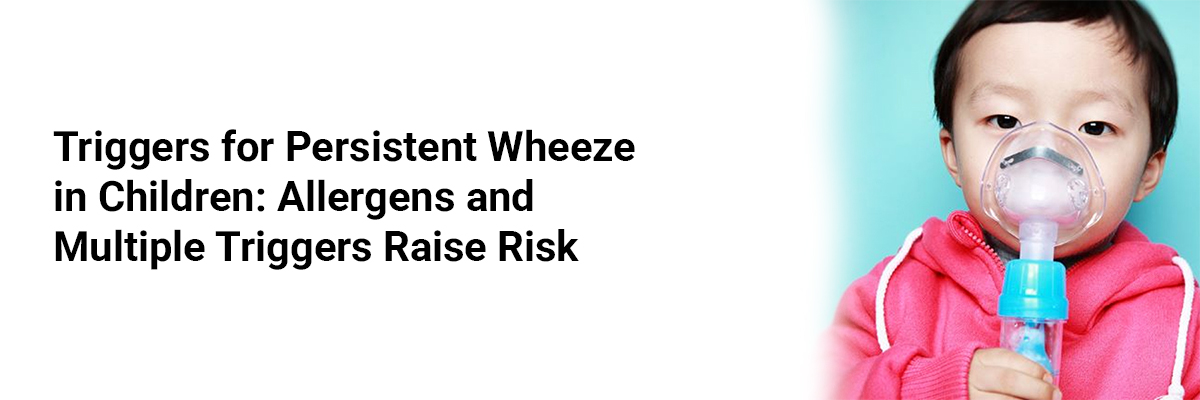
 IJCP Editorial Team
IJCP Editorial Team
Triggers for Persistent Wheeze in Children: Allergens and Multiple Triggers Raise Risk
Children whose wheezing is triggered by allergens are more likely to continue experiencing symptoms over time, according to new research presented at the European Respiratory Society (ERS) International Congress, held in Milan, Italy, from September 9–13. The study also found that children with multiple wheeze triggers were at a significantly greater risk of persistent wheeze compared to those with a single or no identified trigger.
Study Overview
A total of 1,086 children (mean age: 8 years; age range: 0–17 years) attending respiratory outpatient clinics with wheezing symptoms were enrolled in the study. Around 61% were male. These children were part of the Swiss Paediatric Airway Cohort, which includes pediatric patients with recurrent wheezing, coughing, and exercise-related respiratory symptoms.
Using standardized questionnaires, researchers collected data on wheeze triggers at the time of enrollment and again after 12 months of follow-up. Triggers included:
- Respiratory infections (colds)
- Allergens
- Exercise
- Combination of triggers
- No specific trigger
Key Findings
- Cold only was reported as a trigger by 27% of participants.
- Allergens only were reported by 7%.
- Exercise only was cited by 5%.
- 35% had two triggers, and 17% reported all three.
- In 9%, no specific trigger was identified.
After 12 months:
- 57% of all participants still had wheezing symptoms.
- 61–70% of those with 2 or 3 triggers continued to wheeze.
- 44–53% of those with only one trigger still wheezed.
- Among those with no specific trigger, 36% had persistent wheeze.
After adjusting for confounding factors:
- Children with allergens as the sole trigger were twice as likely to have persistent wheeze (OR: 2.0).
- Those with one or two non-allergen triggers had an even higher risk of persistent wheeze (OR > 3.0) compared to children with no trigger.
Public Health Relevance
Wheezing is a common respiratory symptom in children, especially among preschoolers, and is a frequent cause of emergency visits. While many children experience transient wheeze, this study helps identify those at risk for chronic or persistent wheeze, which may progress to asthma over time.
Understanding and identifying specific triggers—especially allergens and the presence of multiple triggers—can support early intervention. Reducing exposure to known triggers and tailoring follow-up strategies may help in preventing the development of chronic respiratory disease.

IJCP Editorial Team
Comprising seasoned professionals and experts from the medical field, the IJCP editorial team is dedicated to delivering timely and accurate content and thriving to provide attention-grabbing information for the readers. What sets them apart are their diverse expertise, spanning academia, research, and clinical practice, and their dedication to upholding the highest standards of quality and integrity. With a wealth of experience and a commitment to excellence, the IJCP editorial team strives to provide valuable perspectives, the latest trends, and in-depth analyses across various medical domains, all in a way that keeps you interested and engaged.




















Please login to comment on this article